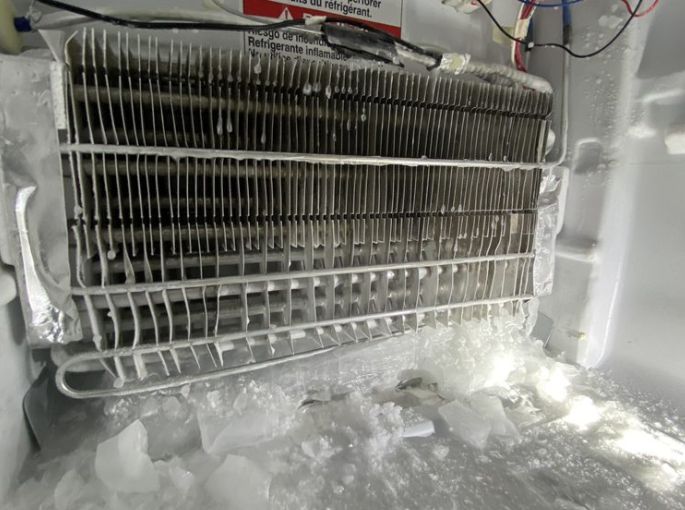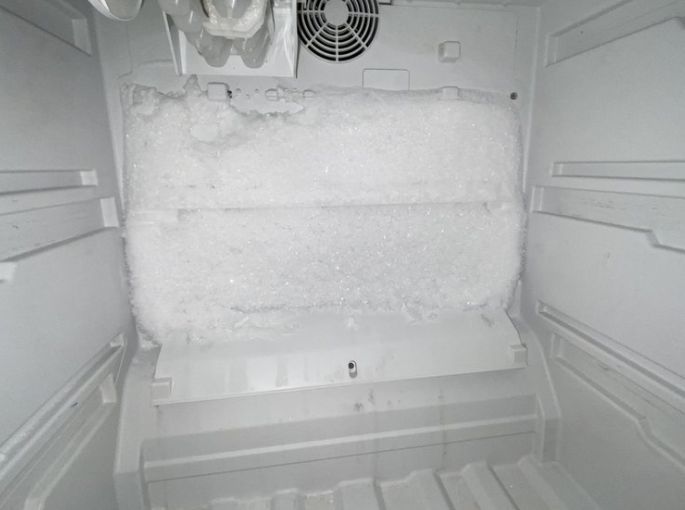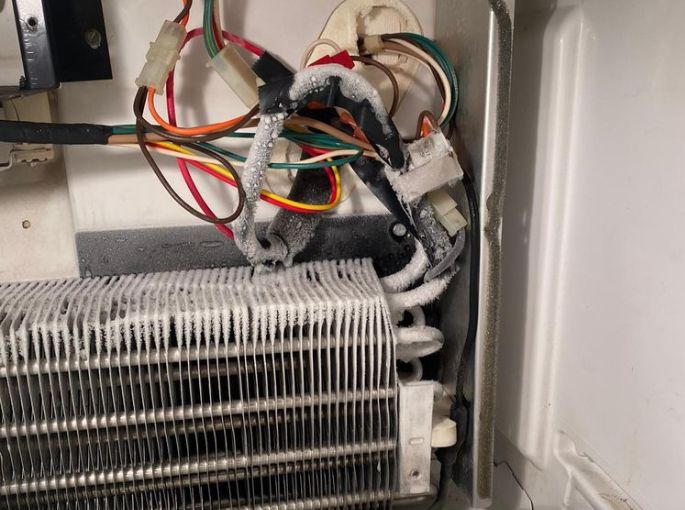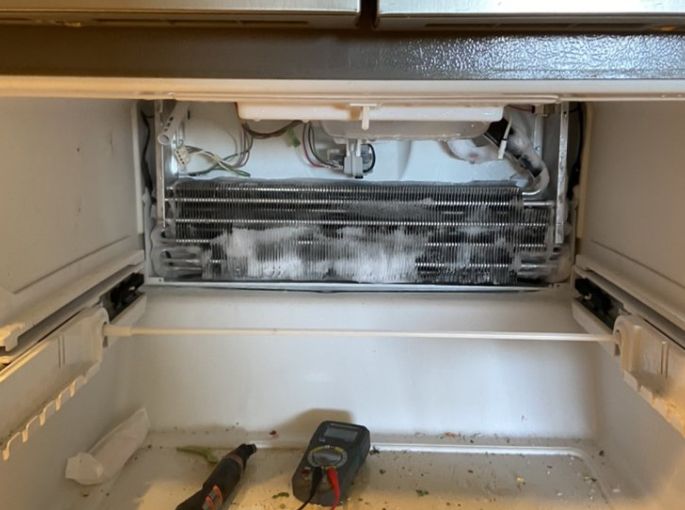




Freezer burn is a common occurrence in frozen foods that impacts their texture, taste and sometimes even smell. It happens when food is exposed to air inside the freezer, causing moisture to evaporate from the product surface. It causes dehydration and the formation of ice crystals outside the item resulting in dry, discolored patches. They often look like white or grayish-brown stems.
Can You Eat Freezer Burnt Food?
While you still can eat products affected by freezer burn, its overall quality (taste and smell, and therefore final satisfaction) becomes lower. So yes, it is safe to eat, however it may not taste as good and fresh due to changes in texture and flavor.
Impact On Different Foods
Freezer burn can affect various foods, including all types of meat (chicken, turkey, beef, steak, fish, shrimp), ice cream, vegetables, and more. Everything you keep in this Arctics of your fridge is in potential danger. Freezer-burned items develop a leathery texture, a dull appearance, and an off-flavor. In some cases it may also develop a noticeable odor, resembling that of stale or rancid food.
How To Cook Meat With Freezer Burn
It is easy to melt ice-cream, boil vegetables or make a fruit-ice. Meat is more complicated. The logic behind cooking meat with freezer burn revolves around salvaging the affected item while ensuring its safety and palatability. It’s essential to use your judgment and first of all discard any spoils or strong odors.
Chicken:
- Challenge: Freezer-burned chicken may become dry, tough, and flavorless when cooked.
- Consideration: Proper seasoning and cooking techniques, such as baking with added moisture or marinating before grilling, can help mitigate these issues and restore tenderness and flavor.
Turkey:
- Challenge: Turkey with freezer burn may lose its juiciness and tenderness, resulting in a dry and unappetizing texture.
- Consideration: Cooking methods that retain moisture, such as roasting with a basting liquid or braising in broth, can help rehydrate the meat and enhance its flavor.
Beef:
- Challenge: Beef with freezer burn may develop a tough and chewy texture, particularly in lean cuts like sirloin or tenderloin.
- Consideration: Slow cooking methods, such as braising or stewing, can help tenderize freezer-burned beef and infuse it with flavor, while marinating beforehand can add moisture and enhance tenderness.
Steak:
- Challenge: Steak with freezer burn may lose its natural juices and tenderness, resulting in a dry and less flavorful eating experience.
- Consideration: Quick cooking methods, such as pan-searing or grilling over high heat, can help seal in moisture and preserve the steak’s natural juices, resulting in a juicy and flavorful outcome.
Fish:
- Challenge: Fish with freezer burn may develop a dry, rubbery texture and a fishy or off-flavor when cooked.
- Consideration: Gentle cooking methods, such as poaching or steaming, can help preserve the delicate texture of freezer-burned fish while adding moisture and enhancing its natural flavors.
Shrimp:
- Challenge: Shrimp with freezer burn may become tough, rubbery, and lose their natural sweetness and flavor.
- Consideration: Quick cooking methods, such as sautéing or grilling, can help minimize moisture loss and preserve the tender texture and sweet flavor of freezer-burned shrimp.
What Are The Main Causes Of Freezer Burn?
Temperature fluctuations
Changes in temperature within the freezer can contribute to freezer burn by causing ice crystals to form on the food’s surface. If your refrigerator is subject to temperature changes, we recommend contacting a household appliance repair service.
Safekeeping failures
When food is not properly sealed or wrapped in airtight packaging, air can come into contact with its surface, leading to moisture loss and a freezer burn. Moreover, even good items that are not properly sealed in airtight containers or freezer bags may also absorb odors from freezer neighbors, affecting their taste and quality.
Storage period
Food that is stored in the freezer for extended periods is more susceptible to dehydration and freezer burn than food that is consumed relatively quickly after freezing.
Type of food
Certain types of food are also more prone to freezer burn than others. Foods with high water content, such as fruits and vegetables, are particularly susceptible to this failure because water molecules are more likely to evaporate from their surfaces. Similarly, lean meats and seafood (like shrimps) are more vulnerable to freezer burn than fatty cuts of meat due to their lower fat content, which provides less insulation against moisture loss.
How To Prevent Freezer Burn?
Here are some steps you can take to address this problem:
- Ensure that your freezer is set to the proper temperature. The ideal temperature for freezing food looks like 0°F (-18°C) or below. Use a thermometer to verify that your freezer is maintaining the correct temperature.
- Tightly seal and properly wrap the items before storing them cold. Use airtight containers, freezer bags, or vacuum-sealed packaging to minimize air exposure and prevent moisture loss.
- Arrange food items in the freezer in a way that promotes good air circulation and minimizes the risk of overcrowding. Leave space between items to allow cold air to circulate.
- Practice a “first in, first out” approach to using frozen foods. Rotate older items to the front of the freezer so they are used before newer items. This helps prevent food from being stored in the freezer for extended periods, causing to lower the risk of freezer burn.
- If you do encounter the failed products, use them promptly rather than letting them sit in the freezer for an extended period.
Conclusion
Understanding what is freezer burn, how it looks like, how to cook such foods and how to prevent the issue is essential for maintaining the quality and freshness of your frozen foods and final dishes. By properly packaging, labeling, and storing your items, you can extend their shelf life and save money on groceries in the long run. Don’t let freezer burn ruin your favorite foods—take proactive steps to keep them tasting delicious for as long as possible.
Read more: Remove Ink from Dryer Effortlessly